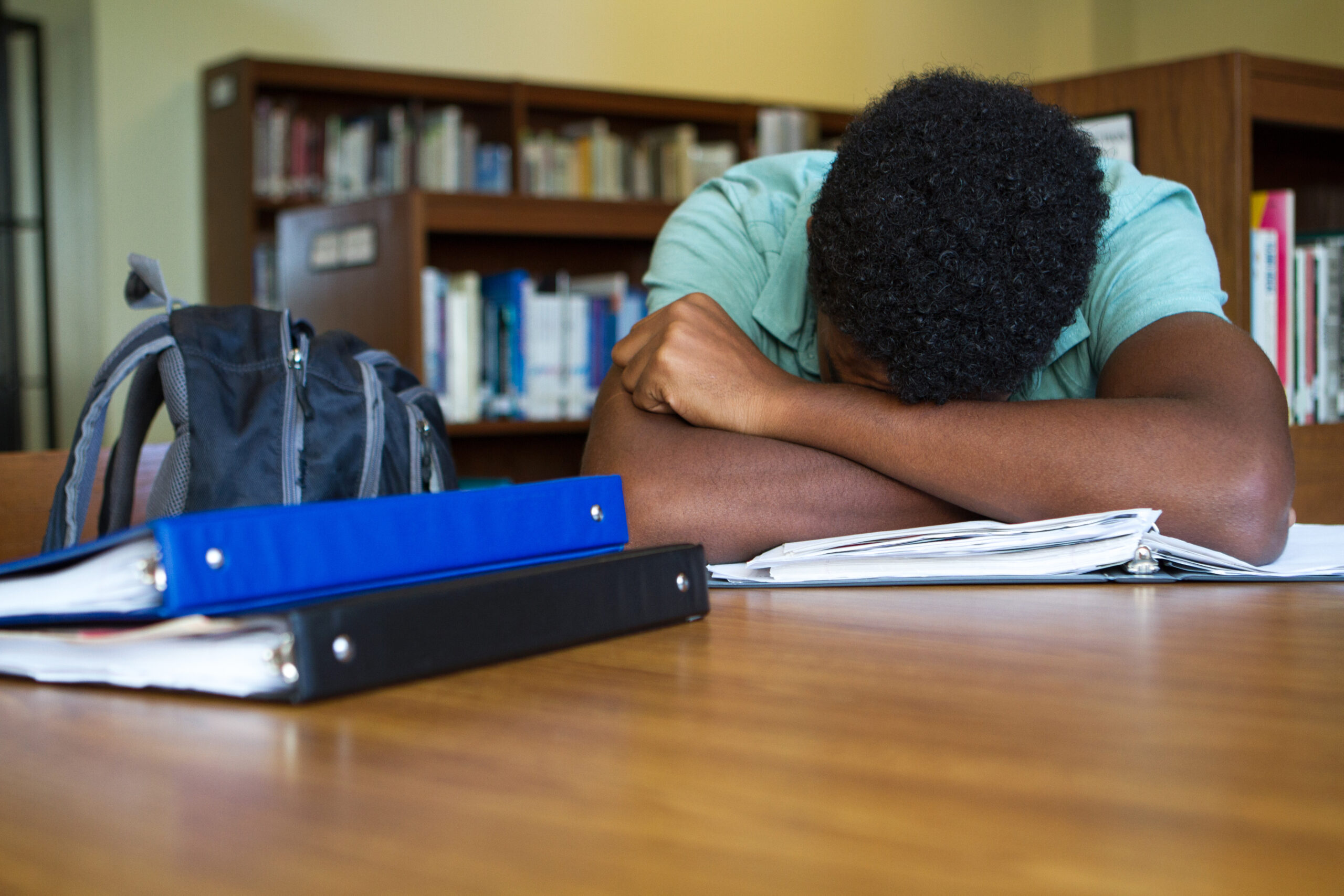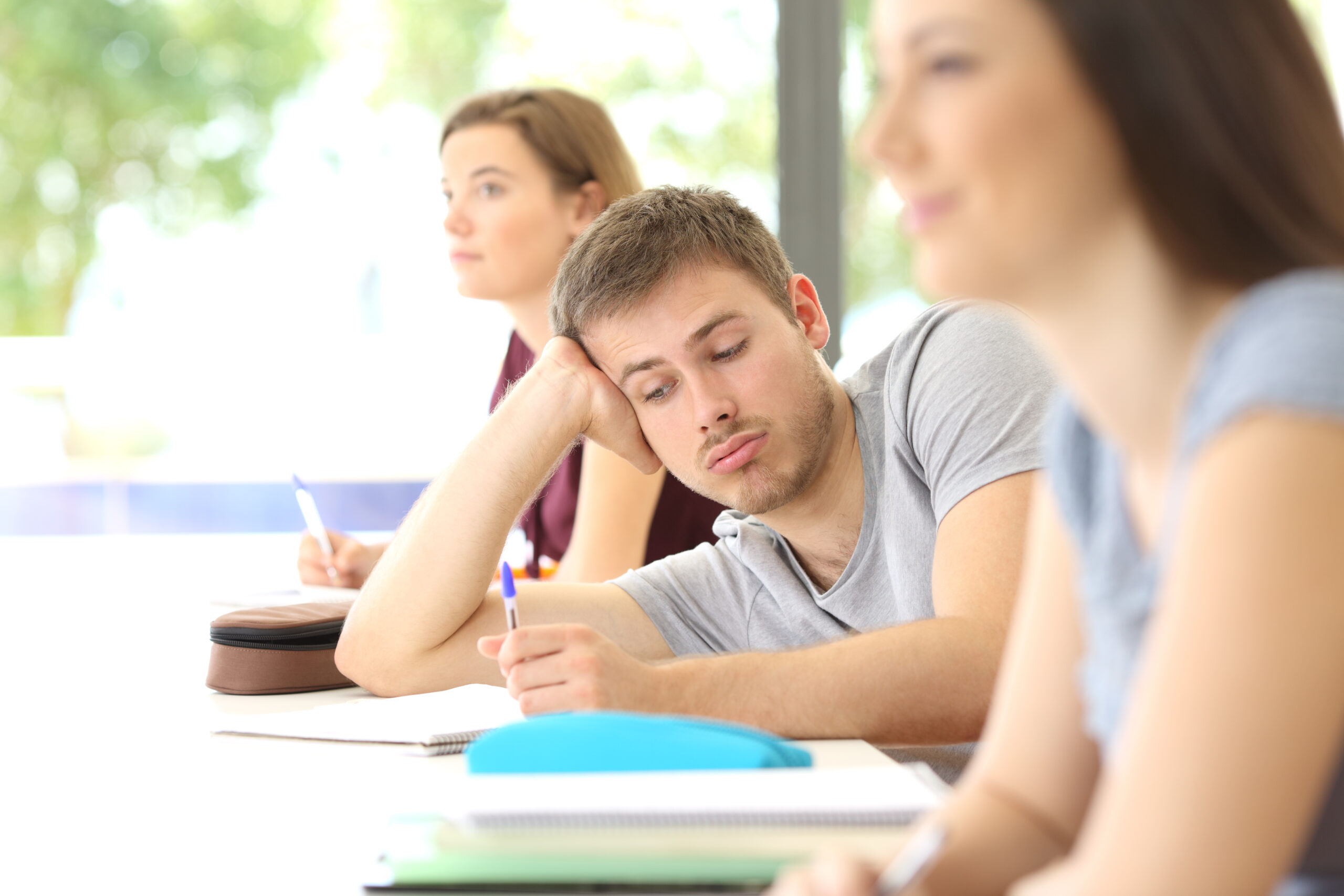In the realm of childhood and adolescent injuries, concussions are unfortunately not uncommon. Whether it’s a fall on the playground, a collision during sports, or any other accident, concussions can have far-reaching effects on cognitive function. It is important to note that you do not need to suffer a hit to the head to sustain a concussion. One of the significant outcomes that many people experience following a concussion is Post-Concussion Syndrome (PCS). This syndrome can bring about a host of cognitive issues that can impact academic performance, social interactions, and overall quality of life. In this blog, we will delve into the intricacies of cognitive issues following concussions, particularly focusing on PCS in children and adolescents in the school setting.
Cognitive Issues Following Concussion: Defining the Landscape
A concussion is a type of traumatic brain injury (TBI) that results in trauma to the head, face, neck, or body which can cause the brain to shake within the skull. Structural and chemical changes occur inthe brain. This sudden movement can disrupt the brain’s normal functioning, leading to a variety of symptoms. Concussions are especially concerning in children and adolescents due to their ongoing brain development.
The prevalence of concussions among children and adolescents is alarmingly high. A study published in the American Academy of Pediatrics estimated that 1.1 to 1.9 million children and adolescents are treated for concussions each year in the United States alone. This number may even be an underestimation, as many concussions go unreported. The vulnerability of young brains, along with their active participation in sports and physical activities, contributes to the high occurrence rate.
Post-Concussion Syndrome (PCS) is a complex condition that occurs in some individuals after experiencing a concussion. It involves a collection of physical, cognitive, and emotional symptoms that persist a minimum of 4-6 weeks.. While most people recover fully within a few weeks after a concussion, PCS symptoms can persist for months or even longer.
So, what are the symptoms of Post-Concussion Syndrome? PCS symptoms can manifest in a wide range of ways, and their severity can vary greatly from person to person. Some common symptoms include:
- Headache: Persistent headaches are a hallmark symptom of PCS. These headaches can be severe and often worsen with mental or physical exertion.
- Fatigue: Extreme tiredness and low energy levels are common in PCS. Even simple tasks may feel draining.
- Vision Changes: Blurred vision, sensitivity to light, and trouble focusing on screens or printed material can occur.
- Balance Issues: Dizziness, unsteadiness, and difficulty maintaining balance are frequently reported.
- Confusion: Cognitive fog, difficulty concentrating, and memory problems can lead to confusion and frustration.
- Insomnia: Sleep disturbances, including difficulty falling asleep or staying asleep, can exacerbate other PCS symptoms.
- Difficulty Concentrating: Concentration and attention span may be significantly impaired, affecting academic and daily activities.
- Executive Function Challenges: Planning, organizing, problem-solving, and decision-making difficulties can arise.
The severity and duration of PCS symptoms can vary. Factors such as the initial severity of the concussion, age, overall health, and prior history of concussions can influence how long PCS symptoms persist.
In order to help children and adolescents recover from PCS, it is crucial to understand the factors that contribute to the duration and severity of the syndrome. This can help parents, educators, and healthcare providers work together to develop effective treatment and management strategies.
Cognitive Issues Associated with PCS
-
Impaired Memory and Concentration: One of the most profound cognitive challenges experienced by individuals with PCS is impaired memory and concentration. This can make it difficult to focus on tasks, follow instructions, and retain information.
-
Slower Processing Speed: Processing information at a slower pace is another cognitive issue linked to PCS. This can lead to frustration as tasks that were once effortless may now require more time and effort.
-
Attention Difficulties: Sustaining attention and filtering out distractions become challenging for those with PCS. This can affect classroom engagement, homework completion, and overall learning.
-
Executive Function Challenges: The brain’s executive functions, responsible for tasks like decision-making, organization, and planning, can be compromised by PCS. This can hinder academic tasks that require strategic thinking and effective time management.

Impact of PCS on Children’s Academic Performance
The classroom is a very stimulating environment, there is background noise, bright lighting, conversations, and more. Multitasking often needs to happen in the classroom, children need to listen to their teacher, focus on the board, and take notes. The room can be bright, loud and fast paced. For a child experiencing PCS, the classroom environment can be overwhelming and difficult to navigate. The room can be bright, loud and fast paced.
The cognitive issues associated with PCS can have a profound impact on a student’s ability to learn and actively participate in the classroom. Tasks that were once routine may now pose significant challenges. Students with PCS may struggle to keep up with the curriculum, complete assignments, and take tests. Processing times are slower for those experiencing PCS and they could require additional breaks in their day causing them to function slower under normal classroom settings. The cognitive deficits can lead to frustration and a sense of falling behind.
Supporting Students with PCS in the Classroom
Creating a Supportive Classroom Environment
Teachers can create a classroom environment that accommodates the unique needs of students with PCS. Minimizing distractions, providing quiet spaces, allowing breaks, shortening days, and reducing homework and testing can enhance their learning experience. Some students find it beneficial to get notes from teachers in advance to lessen the course load and have less to focus on in the classroom.
IEPs and 504 Plans for Students with PCS
Individualized Education Plans (IEPs) and 504 Plans are formalized documents that outline specific accommodations and modifications for students with disabilities. These plans can be instrumental in ensuring that students with PCS receive appropriate support.
Collaborating with Parents and Healthcare Professionals
Collaboration between teachers, parents, and healthcare professionals is crucial for addressing the multidimensional needs of students with PCS. Regular updates and communication can facilitate a holistic approach to support. Doctors are also integral in creating an environment where children can succeed while healing from PCS, they can help educate teachers and administrative staff on the why behind certain modifications.
Modifications for Students with PCS
Modifications and accommodations are often necessary to support students with PCS. Extended time for tests, reduced workload, additional breaks to reduce stimulation, and flexible deadlines are examples of adjustments that can level the playing field.
Ways Teachers and School Administrators Can Be Supportive
-
Classroom Accommodations and Modifications:Implementing classroom accommodations, such as extended time for assignments and tests, preferential seating, and flexible scheduling, can alleviate the challenges faced by students with PCS.
-
Promoting Rest and Gradual Return to Activities: Encouraging a balanced approach to school and extracurricular activities is important. Promoting rest during recovery and a gradual return to full activity levels can prevent symptom exacerbation.
-
Educating Peers and Reducing Stigma: Raising awareness about PCS among peers can foster understanding and empathy. Reducing the stigma surrounding brain injuries creates a more inclusive and supportive environment.
-
Work with School Nurses: School nurses play a vital role in the care of students with PCS. They can monitor symptoms, administer necessary treatments, and provide guidance on managing symptoms at school.

Getting Help with Post- Concussion Syndrome

Raising awareness about PCS within schools and communities is essential. Parents, teachers, and school administrators are pivotal in identifying and addressing PCS symptoms and supporting children in their recovery. Timely intervention and proper management can significantly impact a student’s recovery.
If you feel a loved one is in need of treatment for cognitive issues following concussion or post-concussion syndrome Neuroscience Group can help. We have a multidisciplinary team that is proactive in evaluation, diagnosis, and treatment to help get our patients back to normal activities sooner and with minimal lasting effects. Contact us today to get started.

